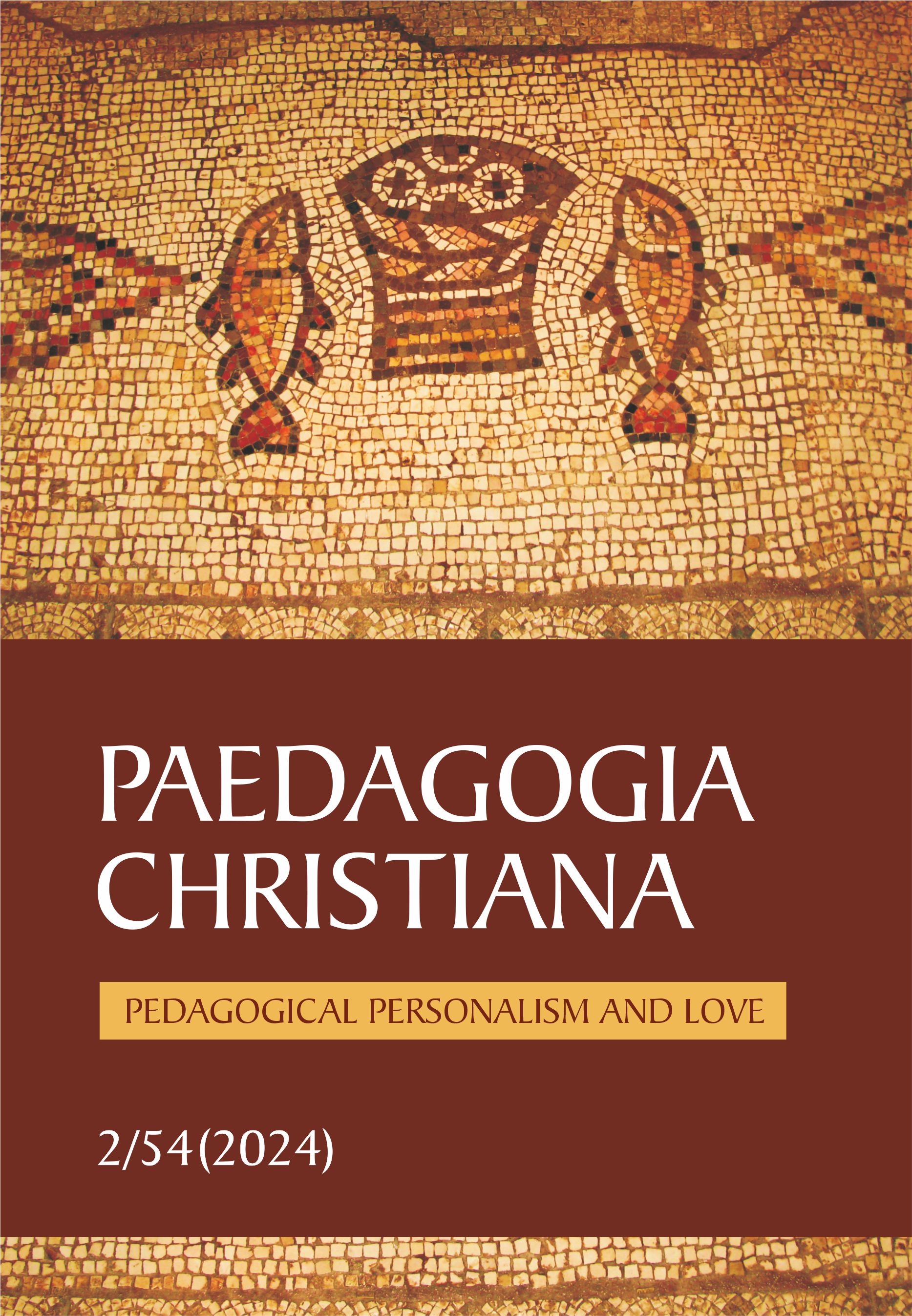Social Personalism, Its Implications for Education and Implementation in Society
DOI:
https://doi.org/10.12775/PCh.2024.018Keywords
social personalism, common good, educational community, accompaniment, dialogueAbstract
The human-person is, according to personalism, open to others, needs others and creates various forms of community. The socialization of the human-person is, most of all, the outcome of lack and excess. The human-person, colloquially speaking, needs other people to grow, and needs interpersonal relationships to ‘give and take.’ The purpose of this essay is to outline the theoretical underpinnings of social personalism, its implications for pedagogy and selected examples of how it is cultivated in practice. The author demonstrates that the ‘I’ directed to the ‘you’ also becomes the ‘I’ for the ‘you.’ Thus, the theory of the human being – the person – as a relational being translates into the teleology of education and pedagogical practice. ‘I’ is oriented ‘towards’ and ‘for’ ‘you’/‘You,’ being ‘with’ ‘you’/‘You.’ It is worth noting that social personalism is a path ‘between’ individualism and collectivism. It attempts to combine the individual good with the common good through the characteristic of participation in the community. The pedagogy of the person comes to fruition in the community, according to the principles of companionship through dialogue. It strives for the full development of the human being as a person – a development that materialises through active love towards the other in a spirit of solidarity.
References
Arystoteles. (2009). Metafizyka. Warszawa: Wydawnictwo Naukowe PWN.
Augustyn. (1996). O Trójcy Świętej. Kraków: Znak.
Burgos, J. M. (2012). Personalizm dziś. Studia Włocławskie, 14, 341–358.
Maritain, J. (1947). La personne et le bien commun. Paris: Desclée de Brouwer.
Mounier, E. (1960). Co to jest personalizm? Kraków: Znak.
Mounier, E. (1964). Wprowadzenie do egzystencjalizmów. Kraków: Znak.
Musaio, M. (2020). Dalla distanza alla relazione. Pedagogia e relazione d’aiuto nell’emergenza. Milano–Udine: Mimesis.
Nohl, H. (1988). Die pädagogische Bewegung in Deutschland und ihre Theorie. Frankfurt am Main: Vittoria Klostermann.
Olbrycht, K. (2007). Czy można wychować do pozostania sobą w grupie? Zeszyty Karmelitańskie, 40(3), 74–77.
Persona e educazione. XLIV Convegno di Scole. (2006). Brescia: Editrice La Scuola.
Possenti, V. (2017). Osoba nową zasadą. Lublin: Polskie Towarzystwo Tomasza z Akwinu.
Sroczyński, W. (2010). Wybrane zagadnienia pedagogiki społecznej. Funkcja środowiskowa i socjalna. Warszawa: Wydawnictwo Uniwersytetu Przyrodniczo-Humanistycznego w Siedlcach.
Stefanini, L. (1979). Personalismo socjale. Roma: Edizioni Studium.
Stoliński, Z. (2009). Cele wychowania w rodzinie. In E. Lisowska & Z. Stoliński (Eds.), Podręczny leksykon pedagogiki rodziny (pp. 38–41). Kielce: UJK.
Strzeszewski, Cz. (1985). Katolicka Nauka Społeczna. Warszawa: Ośrodek Dokumentacji i Studiów Społecznych.
Tarnowski, J. (1993). Jak wychowywać? Warszawa: Wydawnictwo ATK.
Tchorzewski, A. M. de (2018). Wstęp do teorii wychowania. Kraków: Wydawnictwo Naukowe AIK.
Tischner, J. (1982). Etyka Solidarności. Paryż: Editions Spotkania.
Tischner, J. (2017). Inny. Eseje o spotkaniu. Kraków: Znak.
Tomasz z Akwinu. (1962). Suma teologiczna. Vol. 21: Męstwo (II–II, q. 123–140). Londyn: Veritas.
Wojtyła, K. (1994). Osoba i czyn oraz inne studia antropologiczne. Lublin: TN KUL.
Downloads
Published
How to Cite
Issue
Section
License

This work is licensed under a Creative Commons Attribution-NoDerivatives 4.0 International License.
Stats
Number of views and downloads: 391
Number of citations: 0



